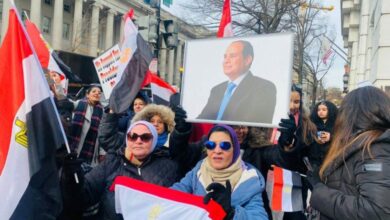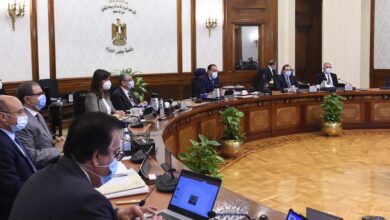London–Last Sunday's parliamentary elections have been the only story in town for weeks, at least for those living in Egypt. But for the large Egyptian expatriate community in the UK, the elections held less significance and received little local media attention.
Disillusionment with the Egyptian electoral process and confirmed widespread allegations of fraud and violence this year, as well as their lack of a vote have disconnected Egyptians living abroad from the politics of their home country, observers say.
Omar Ashour, lecturer on Arab politics and director of the Middle East Studies masters program at Exeter University, said the UK diaspora is not connected enough to Egyptian politics “both in terms of the quality and the quantity of engagement.”
He points to a number of reasons, but explains that “the predominant one is the ‘fear factor’, especially for those who have interests in Egypt and would like to retain the ability to go back home without fear of regime reprisals.” Coercion is another factor he said, “as the regime is willing to offer incentives for supporters abroad.”
Not being able to vote can breed a feeling of helplessness and frustration, discouraging engagement in politics, say many Egyptians residing in London. However, according to many, these feelings stem more from the system itself, as even Egyptians at home don't vote for fear of reprisals and violence or because they have lost faith in the electoral process.
To describe this feeling, many Egyptians abroad frequently use the phrase mafeesh fayda (there is no point).
This attitude is certainly not unique to the diaspora, but it is perhaps tinged with guilt and the discomfort of being an outside observer. Essam Marghani, an Alexandria native who has lived and worked in the UK for the last five years, runs a Facebook group called “Egyptian Society in London.”
He said living in a country where violence and fraud are not the defining characteristics of voting day puts the spectacle of Egyptian elections in stark contrast. “What makes it even more painful is watching the British elections, when you put the two pictures together there’s no comparison.”
Marghani said he was saddened by countrymen who took bribes to vote a certain way or to intimidate other voters, and who don’t see that “whatever they [the ruling party] are giving you with their right hand now they are taking hundreds [of times} of that amount, maybe more, tomorrow.”
There was a brief period earlier this year of mobilization in the UK, part of the flurry of excitement and hope surrounding Former International Atomic Energy Agency Mohamed ElBaradei’s return to Egypt, speculation about a presidential bid and the founding of the National Association for Change (NAC).
ElBaradei spoke at University College London in June 2010 to a packed and enthusiastic crowd that included London members of the NAC. Ashour, who attended the meeting, described it as “one of the largest Egyptian gatherings that I have ever seen abroad…Egyptians were rallying for democracy and united against authoritarianism regardless of ideology, religion, or class.” However, this rare enthusiasm seems to have fizzled before election season.
Elections passed largely unmarked and the NAC no longer has a visible presence in London. Brian Whitaker, a journalist for The Guardian who runs the blog al-Bab, offered scathing criticism of the elections and lack of UK media coverage. “Think back to the stolen election in Iran last year and the reaction then,” he said.
“This week's Egyptian election is every bit as scandalous, and yet it is scarcely front-page news. One reason, of course, is that the WikiLeaks affair has diverted people's attention. But the bigger reason is that Mubarak, unlike Ahmadinejad, is supposedly a friend of the West.”
About 4 million Egyptians live abroad, with 35,000 of them living in the UK, according to An International Organization for Migration 2010 publication.
There was a lot of fuss made earlier this year about the disenfranchisement of expatriate Egyptians, who do not have the right to vote from abroad. Remittances from diaspora communities are not insignificant, giving them a vested interest in the country's politics and economy. With remittances in 2009 estimated at US$7.8 billion, 5.8 percent of Egypt's GDP, many argue those living abroad should have a say in who runs their country.




